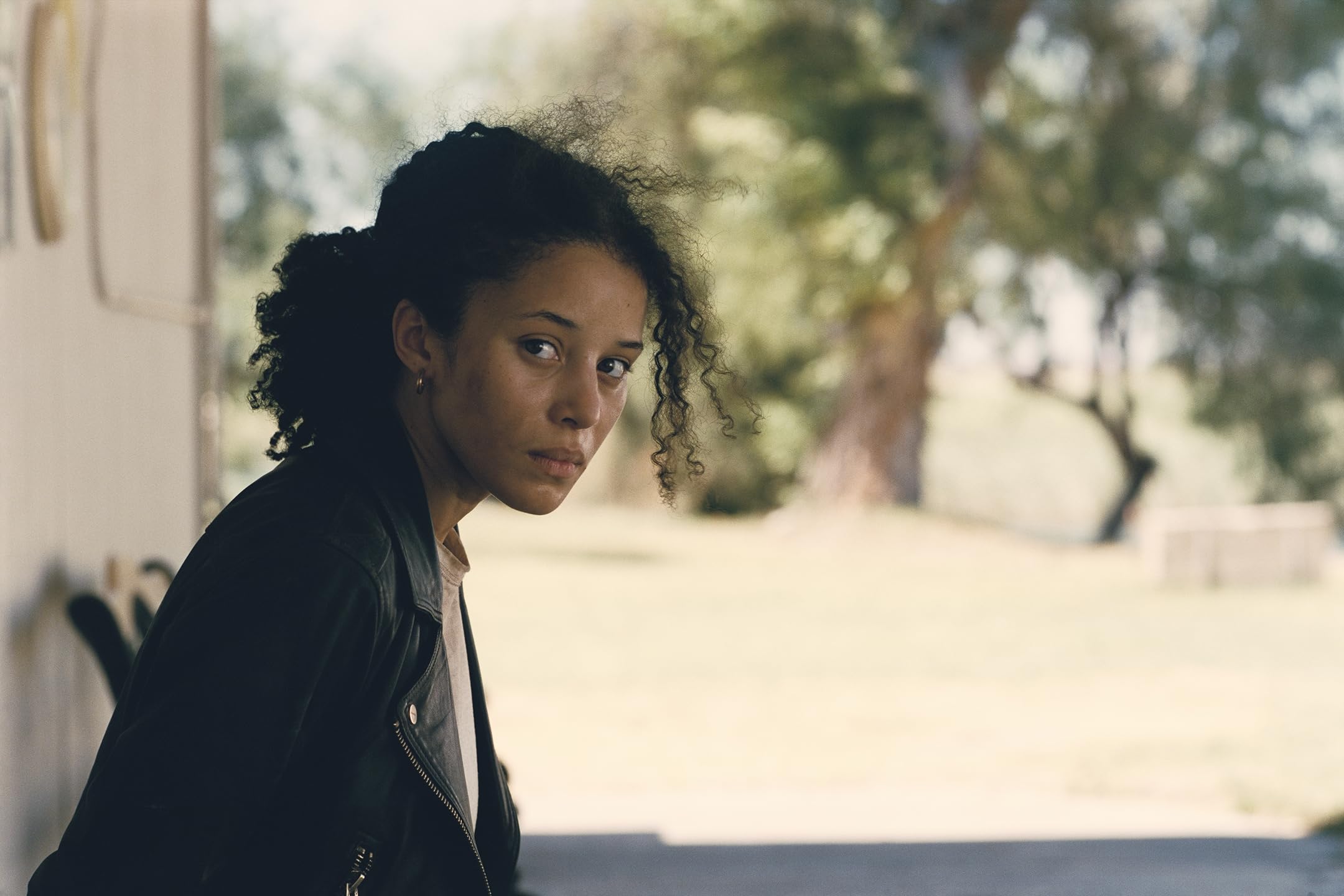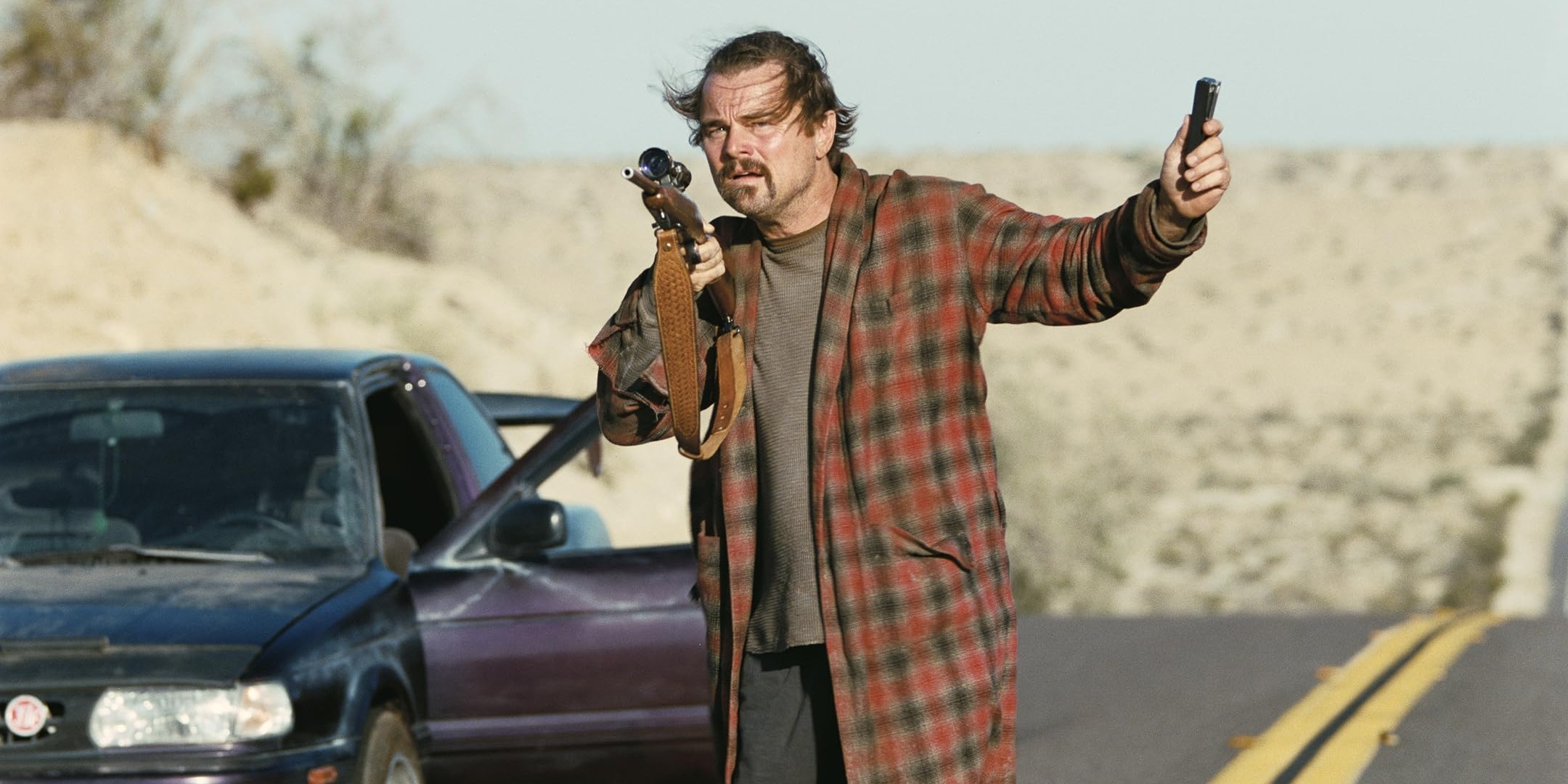One Battle After Another






Film
The ability to write and direct a sprawling action-comedy epic probably doesn't come as a shock when you discover it in Paul Thomas Anderson's bag of tricks. He has been able to craft vivid worlds that are audaciously dense and complex, filled with characters who are equal parts entertaining and challenging. Look no further than one of his most complete works, his 2012 film The Master. Not only is it stunning to look at, but the dueling-yet-symbiotic relationship between Joaquin Phoenix's free-spirited and socially stunted Freddie and Philip Seymour Hoffman's charismatic cult leader, Lancaster Dodd, is revelatory. The push and pull between Anderson's protagonists, he loves an anti-hero dynamic more than protagonist versus antagonist, delivers sensational entertainment value, and is never bogged down by overt messaging. PTA is an auteur after all, his time better spent crafting the character more than the dialogue-not to say his dialogue is lacking-and he has continued this approach with his newest endeavor, One Battle After Another. Creating his most modern and political film to date, Anderson has once again raised the bar, this time to a new dimension, with a sprawling action/comedy epic that feels appropriate for the times, and entertains with feverish delight.
Here Anderson taps Leonardo DiCaprio as his muse, the rebellious idealist cosplaying as a revolutionary Bob Ferguson, who ingrains himself in The French 75, a group of revolutionaries that, upon the film's opening, breaks into an ICE detention facility. While Bob is off setting fireworks as a distraction, a common job for DiCaprio's buffoonish Ferguson, the fiery heart of The French 75, Perfidia Beverly Hills (Teyana Taylor) is emasculating Captain Lockjaw (Sean Penn), emboldening her own aspirations while enrapturing Lockjaw's desire. The sexual fervor that bursts through each rebellious act at times feels juvenile, representing a sort of it's not a phase, dad levity, but the deeper Anderson's script dives into the romantic entanglement of Ferguson and Perfidia, along with Lockjaw's malicious gaze, the more intriguing his themes become. After Ferguson and Perfidia have a daughter, Willa (Chase Infiniti), The French 75 begins to crumble, eventually leading to the split of the parents and Ferguson taking their daughter into hiding. 16 years later, using drugs and alcohol to feed a dazed state of paranoia, Ferguson discovers Lockjaw has his sights set on the father-daughter duo for revenge, and then some.

While Leo operates as the film's main character, he's cut off at the knees at every turn. His inability to remember codes, rendezvous points, and general collapse under pressure create tremendously comedic moments that lighten the scale of the film, and make it outrageously entertaining. This also serves as a wonderful reminder of DiCaprio's command of physical comedy and a testament to the range he possesses as a performer. I'd argue that he's even turned in his finest, most complete performance since The Wolf of Wall Street, another dedicated physical role. But Ferguson's revolutionary illiteracy is not just a comedic ploy; it creates a contrast between the people of color throughout the film who are organized and self-assured in their actions. Benicio del Toro's Sensei Sergio organizing in the background while Ferguson is bumbling about in the foreground might suggest the attention is on the white revolutionary in front of us, but the suggestion of cyclical violence and preparedness in the background elicits the emphasis the writer/director has built. There's some evidence to this layering in PTA's prior works, Dodd's marriage, and Amy Adams' wonderfully restrained role in The Master, Daniel's (Daniel Day-Lewis) adopted son in There Will Be Blood, and most recently in Licorice Pizza the coterie of men in Gary Valentine's (Cooper Hoffman) life. But it's never been done to this level, and providing this much rewarding context, a surefire step in Anderson's rapturous evolution as a filmmaker and his grasp of storytelling.
Anderson builds upon this with Willa's existence as a biracial child, being born into a battle, or battles, that she had no part in creating nor had a choice in participating in. And even though Leo commands much of the screentime, it's Infiniti's Willa that is the true protagonist of the film. Infiniti delivers a powerhouse performance of fantastic balance and ferocity, especially in the finale, where the ideas of race and social identity come into play. But what makes One Battle After Another so intriguing is Anderson's usual tactics. An underreliance on didactic messaging to make these points about authoritarian states, immigration, and race, and instead relying on the complex characters he's crafted to relay his dense thematic layers. Willa, Ferguson, Lockjaw, and especially a scarce-screentime Regina Hall-who, along with Taylor and Infiniti, create a trio of black women who just might be the true focal points in all three acts-all work together in harmony to create a kaleidoscope of entertaining characters that challenges the audience to think deeper without ever being preachy in its political messaging.
It also helps that the technical side of the film works perfectly as well. Michael Bauman's sweeping cinematography captures the large action set pieces, like the raid in Baktan Cross, with sensational clarity and focus. By the time you arrive in the desert for the rollercoaster of a third act, the scope of the film feels more narrow, while the grand scale of Bauman's camera work is gorgeous and sprawling. Not to mention Johnny Greenwood's frantic, jazz-inspired score aids in the pacing of the film, moving to the beat of Ferguson's frenetic paranoia. Turning a nearly three-hour-long movie into what feels like a blip. But it all comes back to the writing and directing, the harmonious vision he possesses, and the ability to weave such complex character studies into one grandiose epic, which is astonishing. All of Anderson's prior films have been time capsules, glimpses into different eras, yet built out in the image of his written personas. One Battle After Another is a departure in the sense that it's modern and the players feel more grounded and apropos to the contemporary setting, but it still possesses that PTA feel that comes with being an auteur of modern cinema. And yet, somehow, this politically charged film feels like his most commercial and approachable film to date. Which almost sounds ridiculous to say, but his dedication to great characters over anything else is what sets him apart and what makes the rich thematic depth of One Battle After Another so accessible. Considering all of this, I don't think it's hyperbolic to say this is a complete film, perfect from top to bottom, and a masterpiece among a master filmmaker's vaunted filmography that I didn't think could get any better.
Froth
Tis the season for Oktoberfest related content! If you're not out and about at your local Oktoberfest celebration then you may as well cozy up in the theater with Paul Thomas Anderson's latest and a damn fine beer to boot. I tapped Obec Brewing for my selection and was not disappointed in the slightest with their Mad Dog Märzen. Known more for their European style, Obec has always had a sweet spot in my heart for their darker beers, especially their Czech Dark Lager or the Granat (a Czech Amber). So it was a no brainer to give their Märzen a whirl and dare I say, much like PTA's newest film joining his pantheon of a filmography, this brew is up there with Obec's best. It's malty and roasty without veering too far into sweet or bready flavors, and has a delightfully subtle touch of toffee on the backend to bring a nice balance. While it might not be on the same level of the Granat, I'm sorry it is my favorite Obec brew, it is damn good and a refreshingly rich experience.








